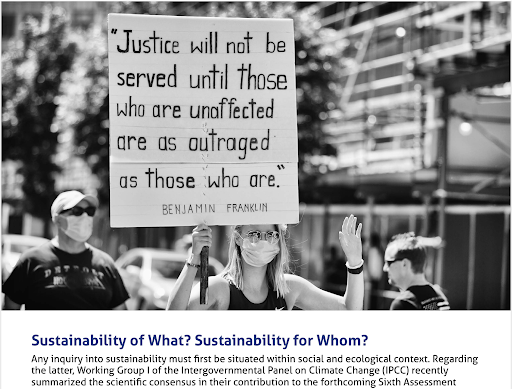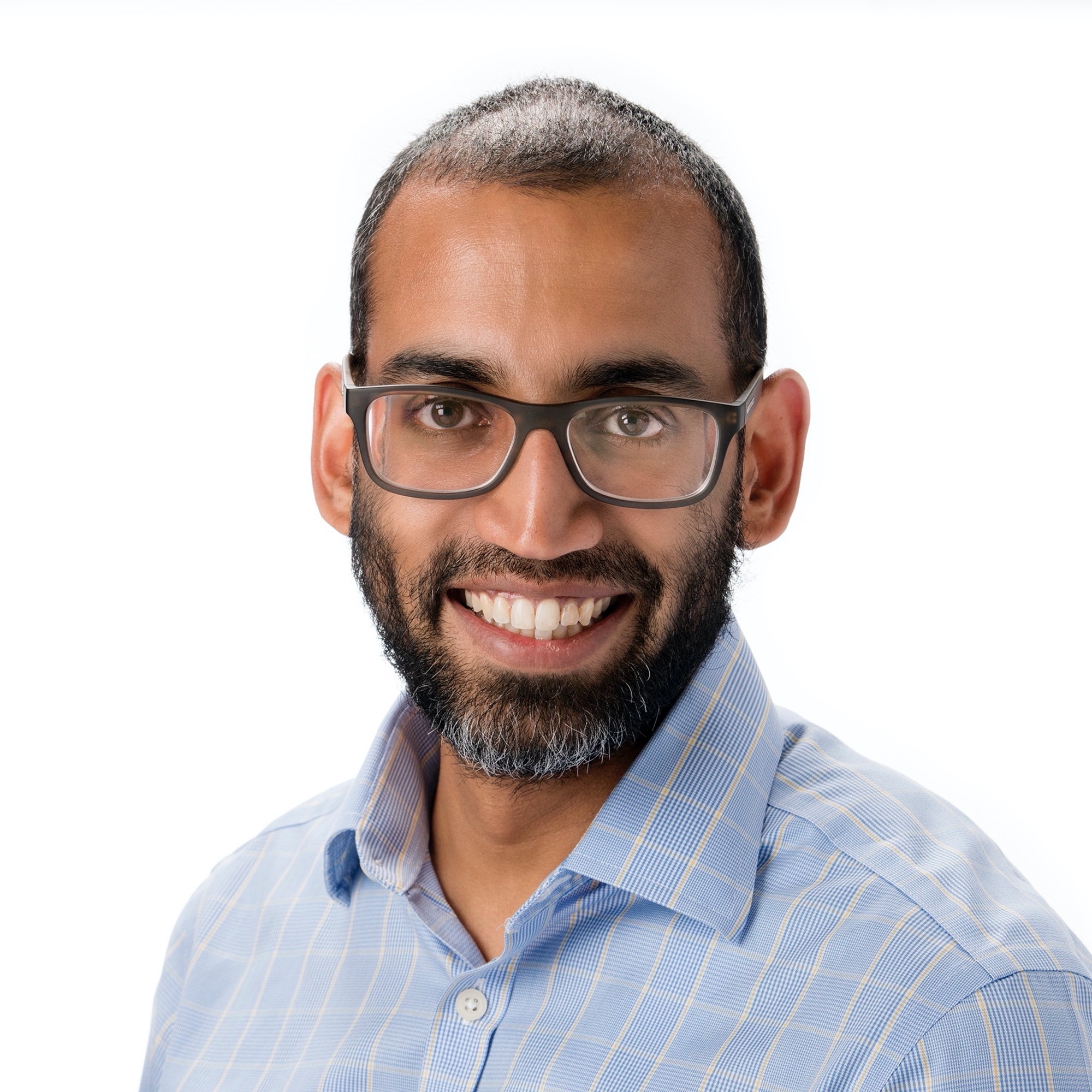MNR alum sourav guha invites educational institutions to engage meaningfully with issues of representation and reparation
August 2, 2022

By Lindsay Kuczera
How can we ensure that diversity, equity, and inclusion are all centered in our work as sustainability professionals? For sourav guha, a Virginia Tech Master of Natural Resources (Online) graduate, doing so demands thinking seriously about the representativeness, responsiveness, and responsibilities of our academic institutions and environmental organizations.
Seeing environmentalism through a social justice lens
With an educational background in cultural anthropology, South Asian studies, and environmental policy, and an upbringing in an immigrant household with parents who were born colonial subjects in British India, sourav approached his natural resource coursework through a social justice lens. “As Americans, we’re more responsible for climate change than other people in the world. I approach things from a perspective of ‘what do we owe our neighbors,’ both locally and globally,” he said.
sourav brought that perspective to a recent presentation for the Virginia Tech Diversity Scholars series entitled Intersectional Environmental Justice: Interdisciplinary Conversations. The series, sponsored by the Office of Recruitment, Diversity, and Inclusion, is designed to elevate voices from historically underrepresented communities across academic disciplines at Virginia Tech who can speak to the intersection of various sustainability topics and environmental justice.
In his presentation, sourav explained the connection between environmental justice and sustainability education in American academia and posed an important question: where are black and brown people in green education? While the United States has become increasingly more diverse, agricultural and natural resource graduates have not. sourav seeks to foreground and address such disparities through his academic and professional work.
Sustainability without justice is unsustainable
In his current role as executive director of the Consortium on High Achievement and Success (CHAS), sourav collaborates across multiple constituencies at numerous colleges and universities. CHAS facilitates peer learning and professional development opportunities oriented toward improving the inclusion and advancement of racially minoritized members of campus communities—whether students, faculty, or staff.
When CHAS was founded, over two decades ago, a concern for many member institutions was the low numbers of Black and Latinx students in their upper-level STEM courses. Often, there were sharp declines from introductory classes to more advanced courses in the proportion of students who were first generation college students, from lower income households, and/or members of historically underrepresented groups. Some schools made substantial headway on such challenges by replacing large lecture classes with much smaller ones and by adding summer bridge programs. Venues like CHAS offer institutional representatives opportunities to learn from successes at peer schools and adapt them for implementation at their own colleges and universities.

Likewise, sourav continues to seek similar learning opportunities for himself, with respect to campus sustainability. In 2020–21, he participated in the Mentorship & Peer Collaboration Program organized by the Association for the Advancement of Sustainability in Higher Education (AASHE). Out of a series of conversations with his mentor, the Director of Sustainability at the University of Richmond, emerged an idea for a paper highlighting the inextricable connections between sustainability efforts and equity work. sourav authored an essay, provocatively titled “Sustainability Without Justice Just Sustains Injustice,” for AASHE’s 2021 publication, Volume II of No Sustainability Without Justice: An Anthology on Racial Equity and Social Justice, which challenges us to question the benefits and obligations of sustainability initiatives.
While an MNR student, sourav consistently sought to engage issues of justice in his written assignments, from forum discussions to longer papers. In a transformative journey to the eastern Indian state of West Bengal during his Global Study trip, sourav was afforded an opportunity to engage in authentic dialogue with farmers and fisherfolk in the area. He also felt a deep personal connection to the region and its people, as a heritage speaker of Bengali. As sourav notes in his article, engagement with the community foregrounds the obligation students of global sustainability have: to consider thoughtfully and critically the distributional effects of development efforts. sourav also voiced how having classmates be informed by so many different real world perspectives, professional perspectives, and geographic perspectives was a positive aspect of the online program.

While sourav’s current professional role is not directly tied to global sustainability, he notes that one course in particular, Leadership Communications, created by Emily Talley, remains very helpful and broadly applicable, even to his work in higher education. “We aspire to prepare students to respond to environmental challenges in a manner that is timely, just, and fair,” said Talley, now Managing Director of Graduate Education and Regional Operations for the College of Natural Resources and Environment, Washington, D.C. area initiatives. “We have recently introduced new environmental justice content in both MNR program formats, and continue to work with all of our students to help them deepen the intercultural competence required to create a sustainable future for all.”
Our common future: solidarity is central to sustainability
It’s imperative to engage communities that have been structurally disadvantaged or disenfranchised when creating sustainability initiatives. Identifying the most pressing needs community members see for themselves and then working with that by building trust and meaningful relationships are aspects of public engagement that should be at the forefront for sustainability professionals. As the director of the UN Environment Programme (UNEP) notes, we need both “Science and Solidarity for a Sustainable Planet.”
When it comes to the world of sustainability and conservation, it is the responsibility of groups and organizations in positions of power or influence—like higher education institutions—to engage and lift up the voices of those that have been historically impacted and marginalized by a colonial approach to environmentalism, while making educational opportunities available to people of color and low-wealth. In order to take a truly holistic approach to tackling climate change and other urgent natural resource concerns, the sustainability field needs practitioners, educators, and activists from all races, ethnicities, and backgrounds.


